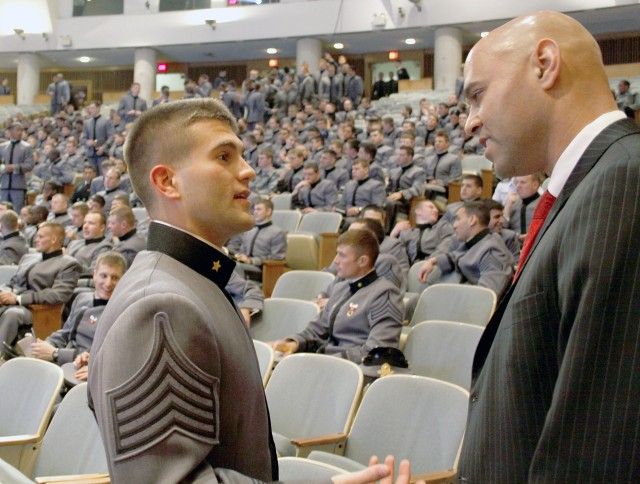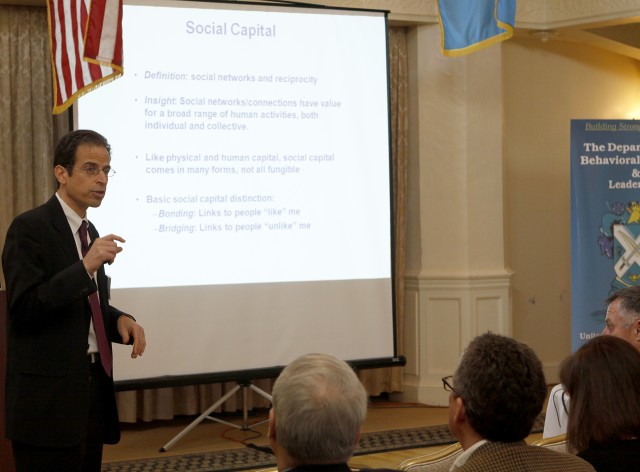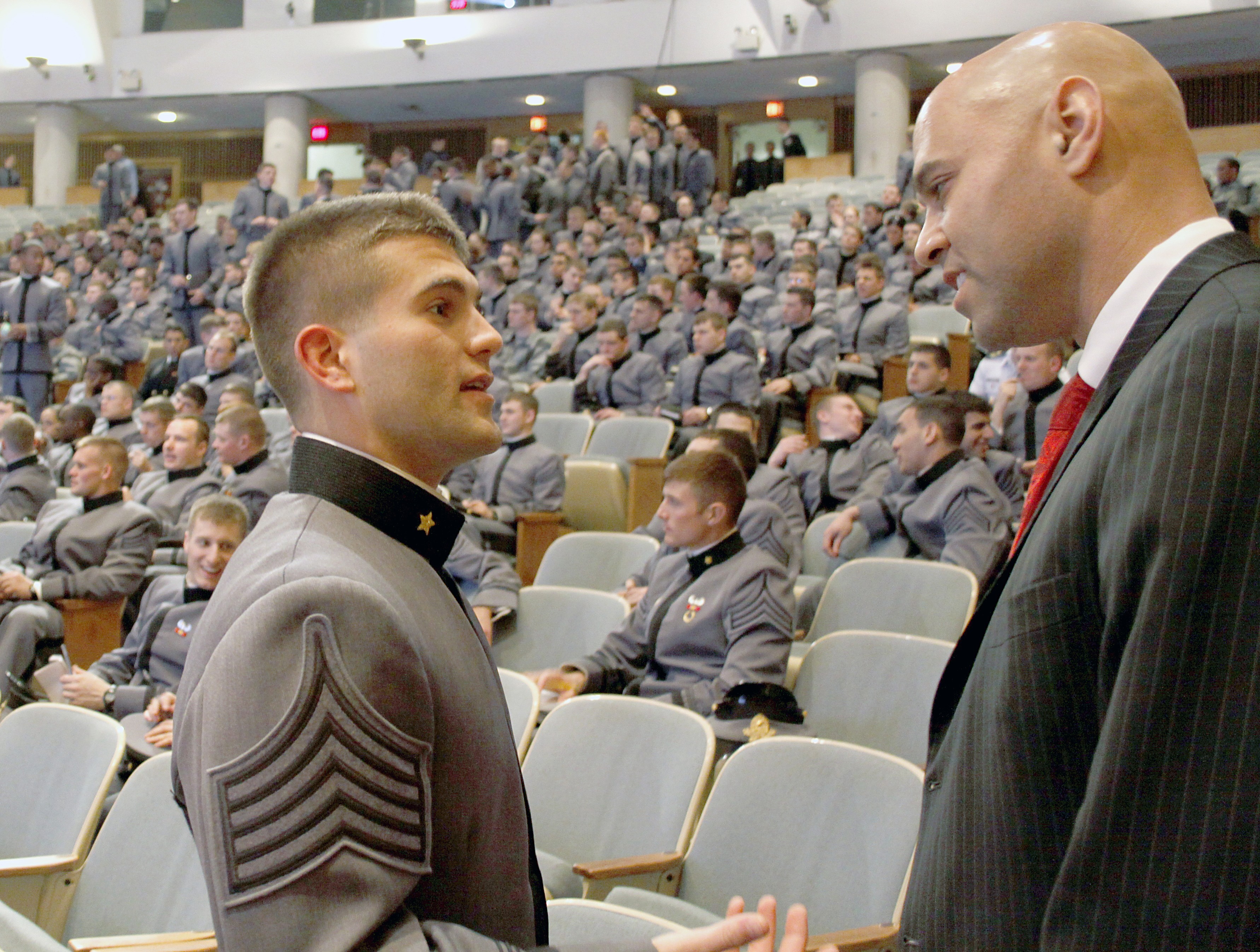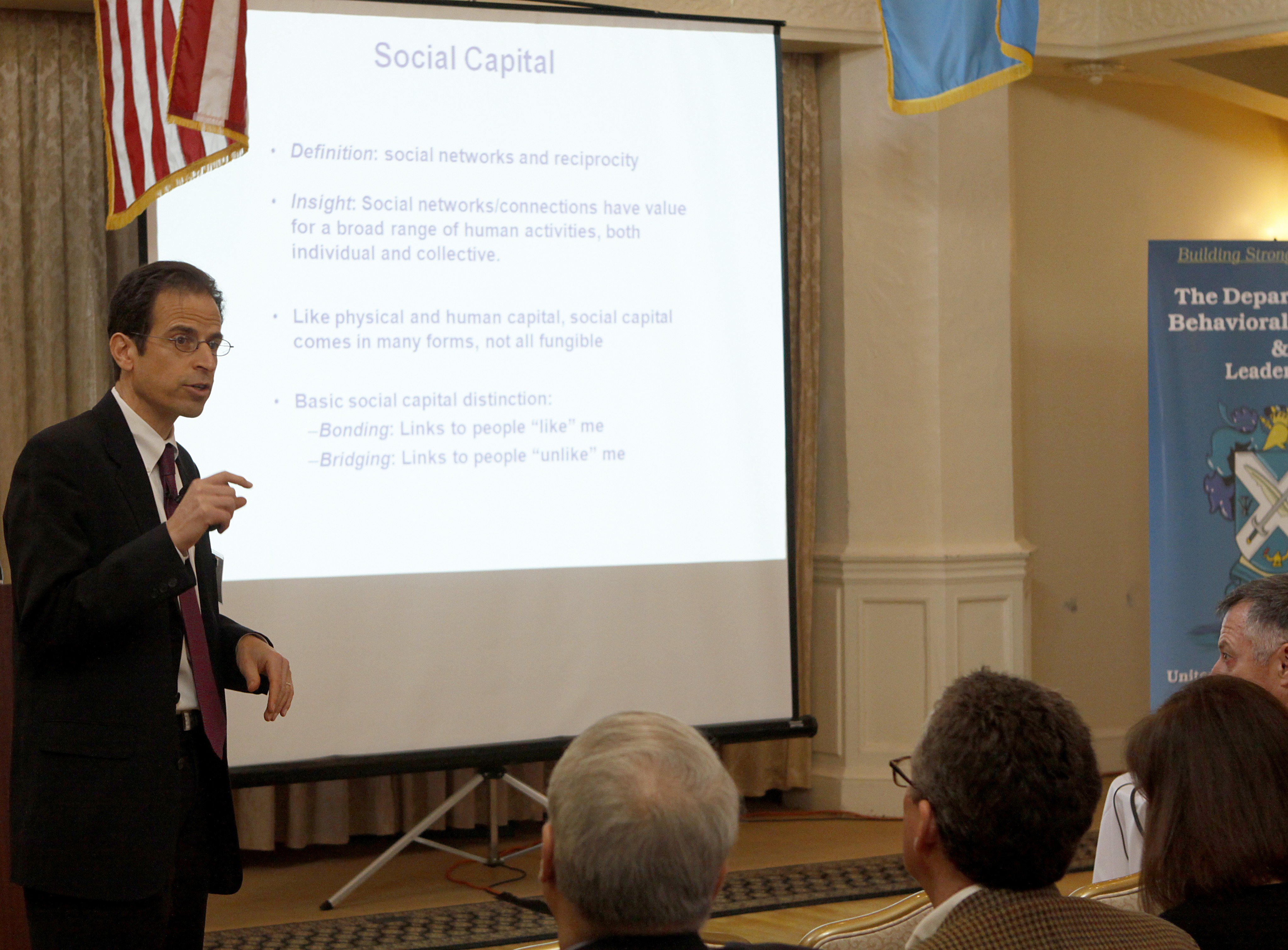WEST POINT, N.Y. (April 6, 2011) -- More than 500 cadets attended the keynote address by Jim Collins, a renowned business consultant, author and lecturer, during the 2011 West Point Global Leadership Conference on March 31.
Class of 2011 cadet Michael Nilsen took a seat toward the front of Robinson Auditorium and began thumbing through the author's book "Good to Great," which describes how companies transition from being average to great and how companies can fail to make the transition. It wasn't Nilsen's first time reading it.
"When I was selected as the 2nd Battalion Commander for 4th Regiment right before Christmas leave, I realized I had no idea how to lead an organization of 570 people," Nilsen said. "I had no experience. Jim Collins' book, "Good to Great," along with advice from other cadets, officers and NCOs, helped provide a direction for where I wanted to bring the battalion."
Collins' spoke earlier that day on leadership with cadets at a Black and Gold Leadership Forum. The evening, however, drew an even larger crowd of cadets, most of whom are currently studying in the PL300 Military Leadership course.
"The speech by Mr. Collins served to take all that we are learning in PL300 and apply it to the real world," Class of 2012 cadet William Carpenter said. "He touched upon topics that we discuss in class such as authentic leadership, emotional intelligence and transformational leadership, as well as many others."
Successful leaders are humble, Collins told the cadets, and that quality can make the difference between being a good or a great leader.
"He also made a great point about surrounding yourself with great people," Carpenter said. "I had always known this to be important, but Mr. Collins illustrated to me that this is vital for a leader's success. The last point, which was his main point, was that good is the enemy of great. I had never thought of this before, but upon further review it makes a great deal of sense. This is now something that I will personally strive for."
The three-day conference, sponsored by the Department of Behavioral Sciences and Leadership, was attended by more than 150 practitioners, scholars, educators and policy-makers to discuss leadership and leader development. Attendees traveled from as far as Israel and London to learn, share their experiences and provide a diverse range of insight.
The conference represents several years of deliberate work on service at the U.S. Military Academy, according to Col. Thomas Kolditz, BS&L department head, in an effort to change both faculty and cadet understanding of the word service.
"Most people immediately associate 'service' with the military, and as we assessed where we were a few years ago we thought we were being somewhat presumptive about service," Kolditz said. "We'd rather be deliberative about service. We'd rather think through the topic because for us at the military academy, the focus is not merely on graduating a cohort of highly talented, well-educated college graduates. It's to provide leadership for our Army and our nation."
Some of the panel topics presented and discussed at the conference included developing the next generation of global leaders, inspiring and empowering students to engage in service-oriented programs and the psychology of giving.
Tom Sander, from Harvard University's Kennedy School, opened the conference presenting his study of trends in social and civic engagements. He particularly focused on social capital and its context in how people perform within groups. Overall, the event included 10 panel discussions and several keynote addresses.
"I think it was a success in that folks were able to engage in a stimulating dialogue on a number of leadership topics," Maj. Jordan Swain, BS&L instructor and event coordinator, said. "The event offered a great opportunity to network and introduce like-minded people to each other and the discussions and connections, I hope, energized folks to go back to their organizations, establish new initiatives, form new partnerships and generally be more energized and prepared to take action in their organizations and toward the completion of their respective missions."




Social Sharing